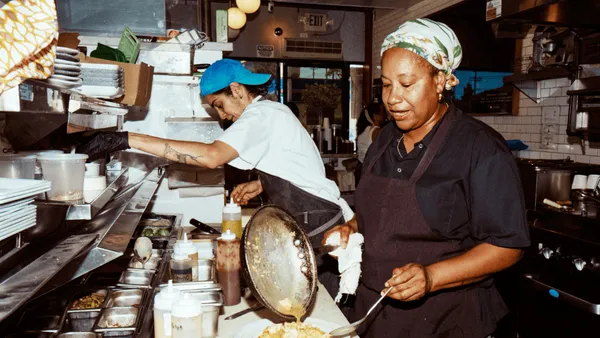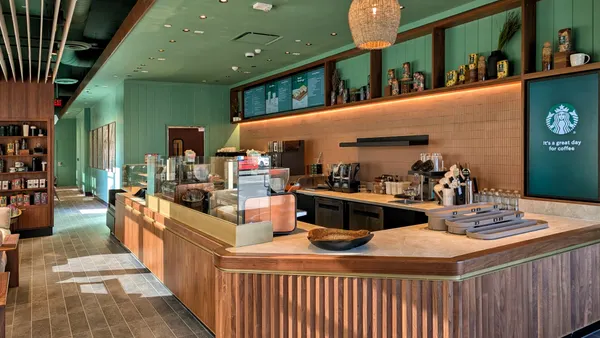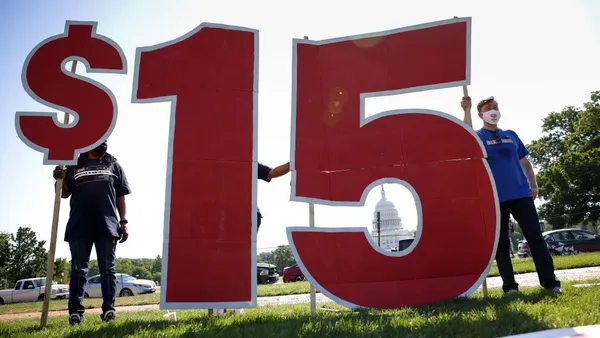Dive Brief:
- Minneapolis City Council passed an ordinance banning future drive-thrus at restaurants, banks, coffee houses, pharmacies and other uses, according to Food and Wine. Drive-thrus were previously restricted in 21 out of 27 zoning districts, QSR Magazine reports.
- The ban is part of the city's 2040 plan to decrease greenhouse emissions 80% by 2050 and is expected to increase pedestrian safety and reduce noise from vehicles.
- It becomes the largest city, with a population of over 400,000, to ban drive-thrus in the U.S., Food and Wine reports.
Dive Insight:
Bans on drive-thrus aren't new. San Luis Obispo, California, has had one since 1982. But the fact that larger cities are starting to push them out is of note, especially as fast casual restaurants roll out pick-up drive-thru windows for mobile orders. An influx of drive-thrus in Long Beach, California, led the city to impose a six-month ban on new drive-thrus in May. Other cities in California, such as Burbank and Santa Monica, have restricted them as well.
The reasons for stopping drive-thrus tend to be more environmental than anything. Drive-thru bans have swept across Canadian cities over the past few years as a way to improve downtown corridors by adding more pedestrian areas and decreasing litter and noise. On the other hand, critics of bans have argued that drive-thrus increase access for seniors and people with disabilities, and have been particularly helpful for busy parents.
If these bans were to become more common across even larger cities in the U.S., it could also force many quick-service restaurants to redesign their future store formats. Removing the option for a drive-thru could be particularly troublesome, especially since about 70% of sales from fast food chains tend to come from drive-thrus. Chains, such as McDonald's and Wendy's, also are working to improve drive-thru times to get more customers in and out faster, which could mean fewer idling cars. McDonald's has been turning to artificial intelligence to create a more personalized experience.
Bans don't necessarily apply to every QSR, though. Amy's Drive Thru, which serves healthy meals, received approval from Corte Madera, California, to convert a former Denny's into its restaurant despite an existing drive-thru ban. If a QSR has a compelling reason to exist and has plenty of support from the community, it could benefit by being the only drive-thru in a local area.










